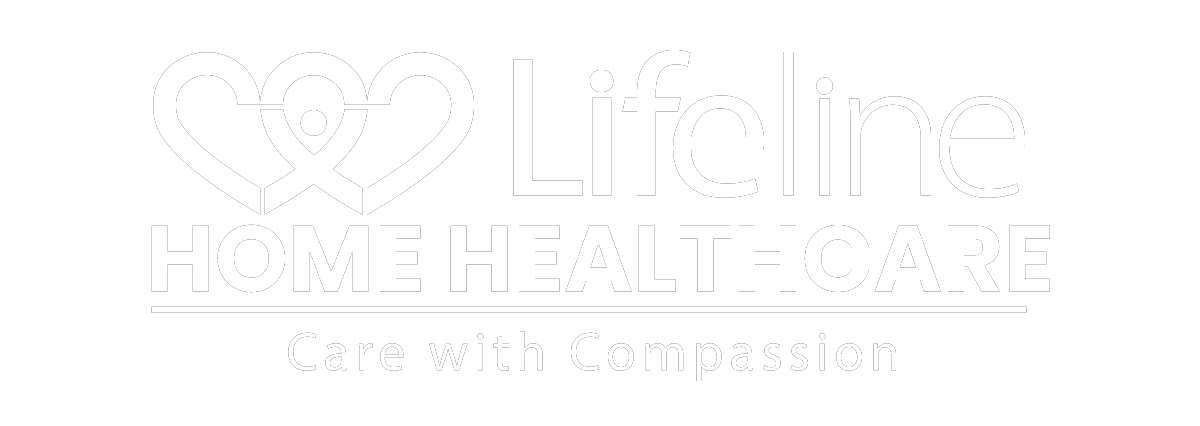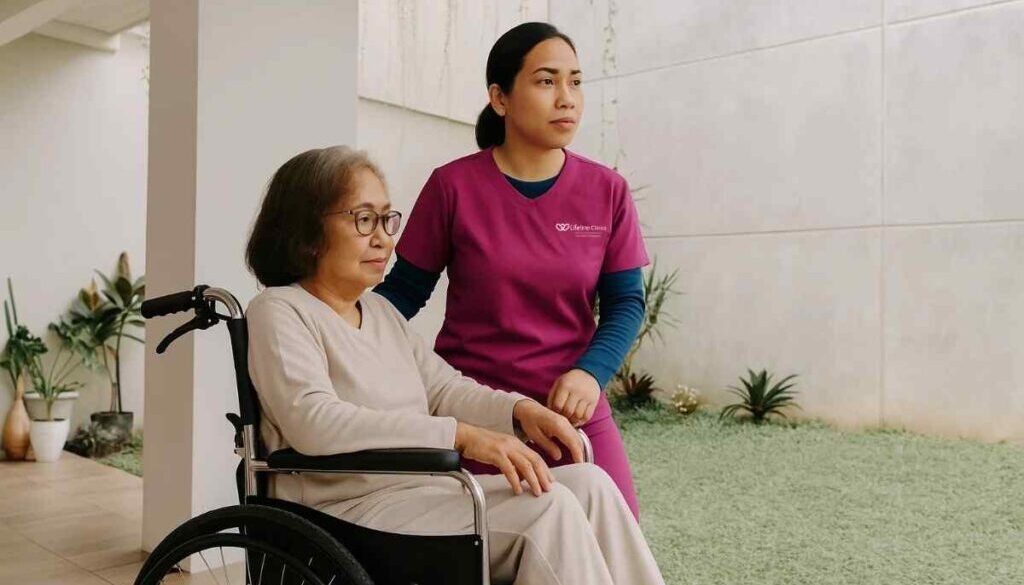A Complete Guide to Palliative Care at Home: What Families Should Know
When someone in your family is living with a serious illness, the medical journey often feels overwhelming. Hospital visits, medications, and constant adjustments can take a toll not only on the patient but also on loved ones. For many families, the idea of receiving palliative care at home offers comfort, dignity, and a better quality of life. It enables patients to remain in a familiar setting while receiving expert medical and emotional care.
At Lifeline Homecare Dubai, we frequently meet families who are unsure what palliative home care truly entails. Some think it is only about end-of-life support, while others assume it means giving up treatment altogether. In reality, palliative care is broader than that. It focuses on alleviating symptoms, lowering stress, and assisting patients in living as fully and comfortably as possible, regardless of their stage of sickness.
What Is Palliative Care?
Palliative care is a sort of specialized medical care provided to those suffering from serious or terminal illnesses. Instead of curing the disease, palliative care aims to alleviate pain, manage symptoms, and enhance quality of life. While hospital-based care treats individuals acutely, palliative home care enables that individualised, supportive care to occur in the patient’s own living environment.
This type of care is appropriate for problems such as advanced cancer, chronic heart or lung disease, kidney failure, or neurological disorders such as Parkinson’s or dementia. It is also beneficial for older adults managing multiple health concerns. Palliative care can also be used not just at the end of life. It might begin with a diagnosis and continue alongside treatments aimed at managing or slowing the progression of the condition.

Why Choose Palliative Home Care?
Many families ask why palliative care at home is often preferred over hospital-based care. The answer lies in comfort, control, and emotional well-being. Patients usually feel more at ease when surrounded by their loved ones and in the familiar setting of their own home. At the same time, professional nurses and caregivers handle medical needs safely.
Key benefits of palliative home care include:
- Symptom management: Pain, breathlessness, nausea, and fatigue are closely monitored and controlled.
- Personalised attention: Care is tailored to the patient’s needs and adjusted as their condition changes.
- Family involvement: Loved ones can be actively involved in daily care without being overwhelmed.
- Emotional and psychological support: Both patient and family members receive guidance and reassurance during a difficult time.
What Does Palliative Home Care Include?
Palliative care at home is holistic and includes much more than treatment for medical conditions. Depending on the needs of the patient, it may include:
- Medical support: Routine check-ins, administering medications, IV therapy, and coordination with doctors.
- Pain and symptom relief: Caregivers are trained to relieve discomfort and respond to changes in symptoms promptly.
- Emotional and mental health support: Patients may feel anxious, depressed, or fearful. Compassionate care helps them feel heard and supported.
- Daily life assistance: Assist with activities such as eating, bathing, movement, and other daily chores.
- Family education: Guidance for family members on how to provide safe and effective care between professional visits.
Palliative Care vs. Hospice Care
One common question we hear is about the difference between palliative care and hospice care. Both prioritise comfort and quality of life, but they are not the same.
- Palliative care can begin at any point throughout a serious illness, including while curative treatments are being delivered.
- Hospice care is a sort of palliative care that is specifically tailored to patients who are reaching the end of their lives and have exhausted all other therapeutic options.
Understanding this distinction helps families make informed choices without feeling that they are “giving up.”
How Families Benefit from Home-Based Palliative Care
Families are often more comfortable when caregivers with credentials are on hand. Rather than invest energy worrying about the medical details, family members can devote time to being with their loved one. Palliative home care also reduces unnecessary hospital admissions, saving stress and cost.
Equally important, it provides families with training and emotional resilience. Knowing what to expect and how to respond to changes can make caregiving less intimidating. The support of professionals gives families further confidence that they are not alone in their journey.
The Role of Nurses and Caregivers
Palliative home care revolves around speciality nurses who have expertise not only in technical skills but also in empathy and practical communication skills. A competent nurse can recognise subtle changes in the patient and respond to them appropriately. They also help families understand the practical aspects of care, from medication schedules to positioning for comfort.
Beyond the medical role, caregivers also create a supportive presence. Sometimes, what matters most to patients is simply having someone to listen, share a conversation, or provide reassurance.

Palliative Care in Dubai: Meeting Cultural and Family Needs
In Dubai, people generally live in traditional families. Many people want to keep family close at home rather than in a hospital. Palliative care services in post-conflict zones embody these values by ensuring that the support provided is reflective of family traditions and also respects the standards of laid-out care. Furthermore, the multicultural and multi-ethnic context means that team members are attuned to the cultural and spiritual preferences so that the patients and their families feel respected in all dimensions of care.
When Should You Consider Palliative Home Care?
Families should not wait until the final stages of illness to seek help. Consider palliative home care if:
- The patient is experiencing unrelenting pain or symptoms.
- The patient is experiencing escalating, distressing emergency room visits.
- Family caregivers feel worn out or unsupported.
- The patient wants to stay at home.
The earlier a patient receives palliative care, the better they can experience comfort during their illness, the number of complications can be decreased, and families will have time together that matters.
Taking the First Step
Palliative homecare is not about terminating hope. Palliative home care is about shifting the focus to comfort, dignity, and quality time together that truly matters. It is possible for families to feel empowered to be on this challenging journey with the knowledge that their loved one is being supported professionally.
At Lifeline Homecare Dubai, our teams provide complete palliative care to each patient. We work closely with families to design a plan that supports both medical and emotional well-being.
If someone you love is living with a serious illness, you do not have to face it alone. Contact us today to discover how palliative home care can enhance your family’s quality of life.





